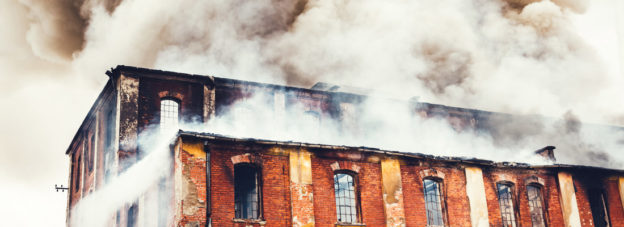Larsen v. 401 Main St. Inc., 302 Neb. 454 (2019), involved a fire originating in the basement of the Quart House Pub (Pub) in Plattsmouth, Nebraska that spread to and damaged Plattsmouth Chiropractic Center, Inc., a neighboring business. Fire investigators could not enter the building because the structure was unsafe and demolished. The chiropractic center nevertheless sued the Pub alleging that its failure to maintain and replace basement mechanical equipment caused ignition.
To prove its claim, the plaintiff retained a mechanical engineer who reviewed documents and concluded that the fire “originated from a failure of one of the items of mechanical equipment located in the area of the [basement] boiler.” Importantly, however, the consultant could not determine the root cause of the fire, could not eliminate the possibility that the fire originated in a compressor, and could not rule out the building’s electrical service as the ignition source because it was outside his area of expertise. The consultant nevertheless found that the fire most likely would not have occurred if the Pub had regularly serviced and replaced the equipment when needed.
The trial judge granted the Pub’s motion to strike the consultant’s opinion and dismissed the complaint. The court found that while the consultant was a qualified mechanical engineer, his testimony failed to satisfy the standard established in Daubert v. Merrell Dow Pharmaceuticals, Inc., 509 U.S. 579 (1993) and the state’s equivalent evidentiary rule, Neb. R. Evid. 702, because “the methodology could not be properly applied to the facts at issue.” Further, the consultant could not state that a mechanical failure caused the fire and it was mere speculation that regular inspections and maintenance would have prevented ignition.
The Nebraska Supreme Court, addressing both preclusion of the expert testimony and the grant of summary judgment, affirmed the trial court’s decision. The court found that the trial court did not abuse its discretion in excluding the expert’s testimony because the consultant could not form an opinion on which piece of equipment failed and caused the fire. The consultant, likewise, could not establish that the fire would not have occurred had the Pub performed inspections and maintenance. The Supreme Court found that the trial court properly granted summary judgment because there was insufficient proof, without engaging in “guess, speculation, conjecture, or choice of possibilities [sic], that a negligent failure to adequately maintain equipment caused the fire and resulting damage.”
Proving a fire loss claim premised on ignition, as opposed to spread or delayed detection, requires proof by a qualified consultant of origin and cause. A consultant’s inability to inspect a fire scene and evaluate relevant evidence because of dangerous conditions makes origin and cause determination tasks much more challenging and sometimes impossible. The Nebraska Supreme Court’s holding was a predictable result given the facts presented.


Pingback: Fire Consultants Cannot Base Opinions on Speculation - Advise & Consult, Inc.Advise & Consult, Inc.